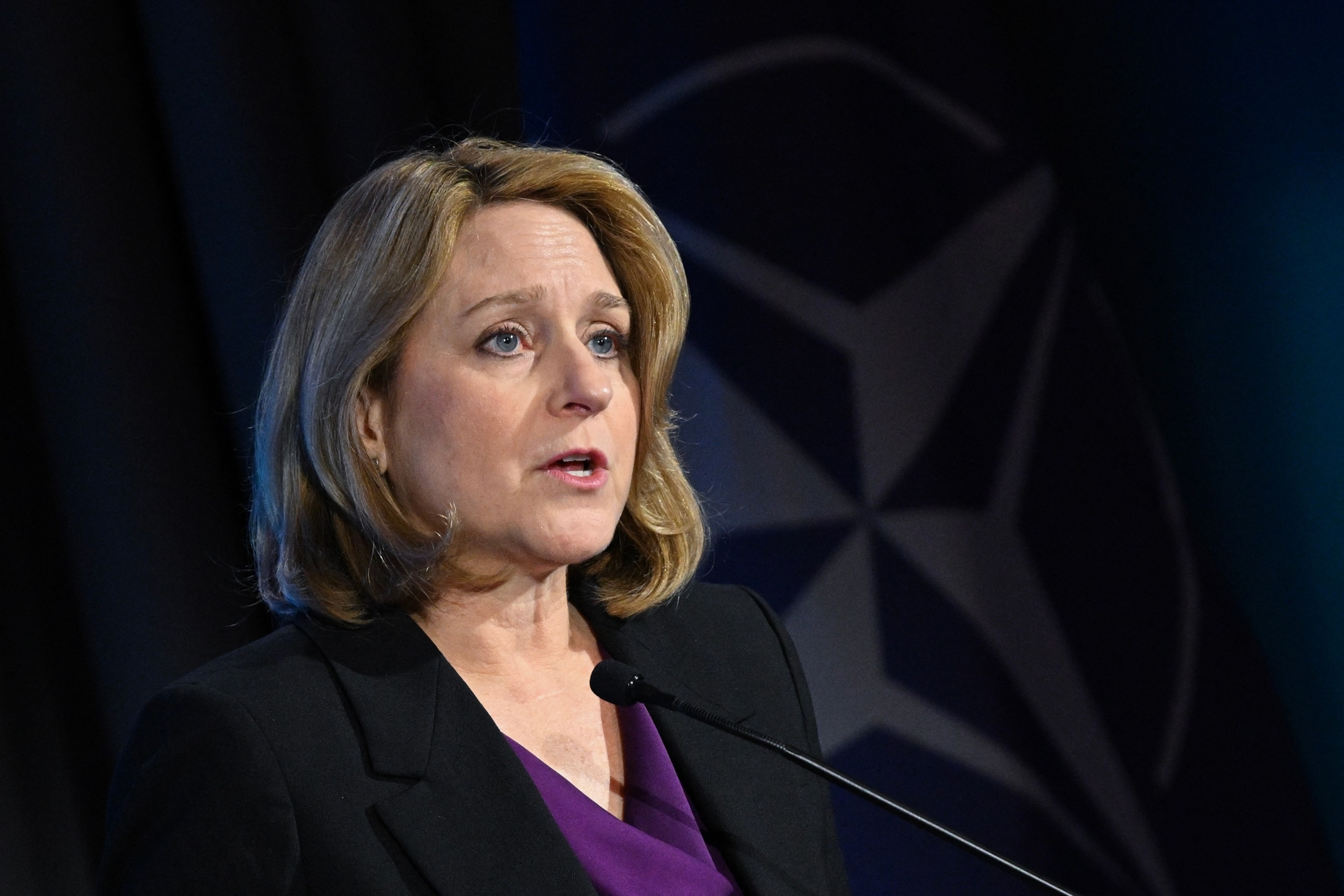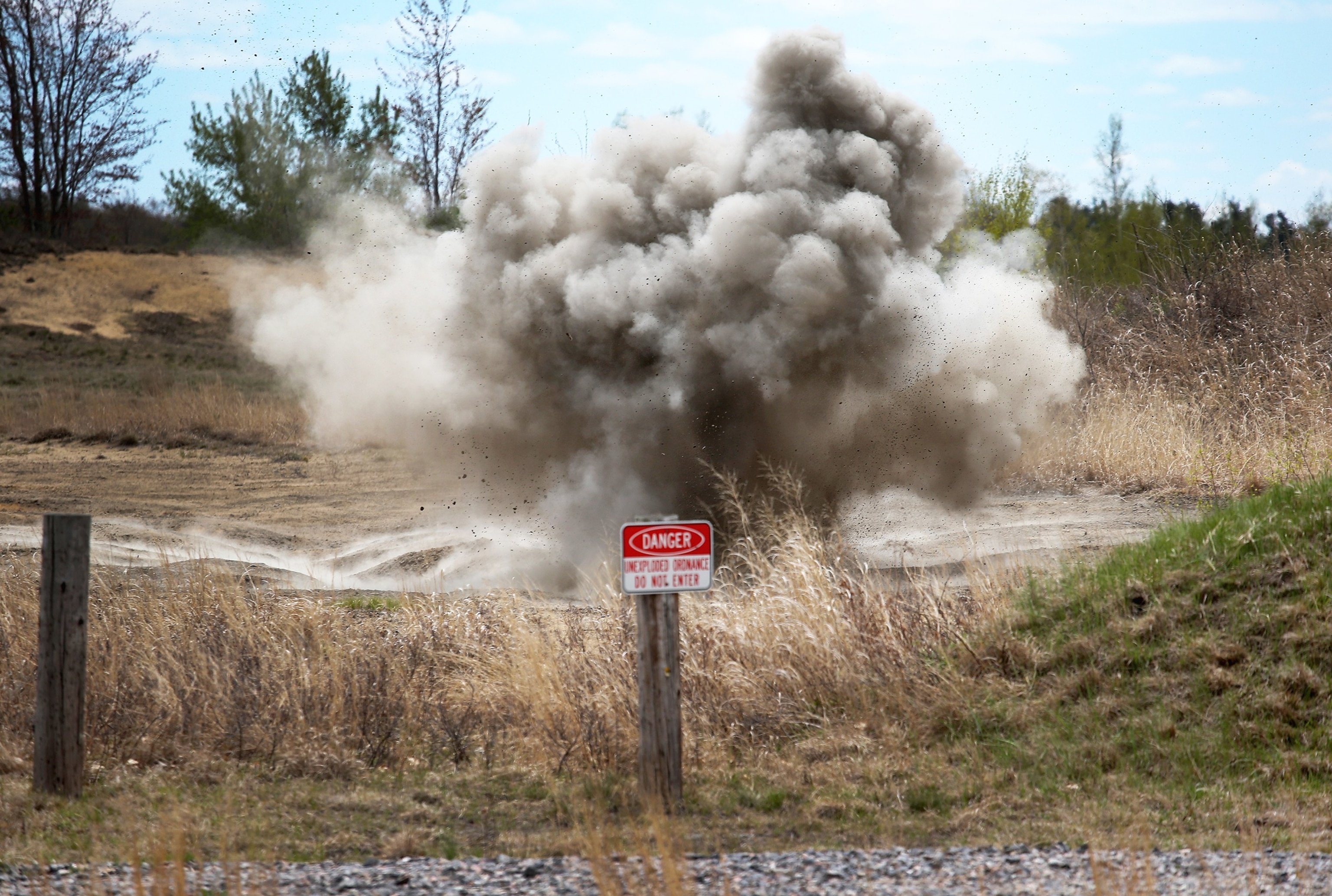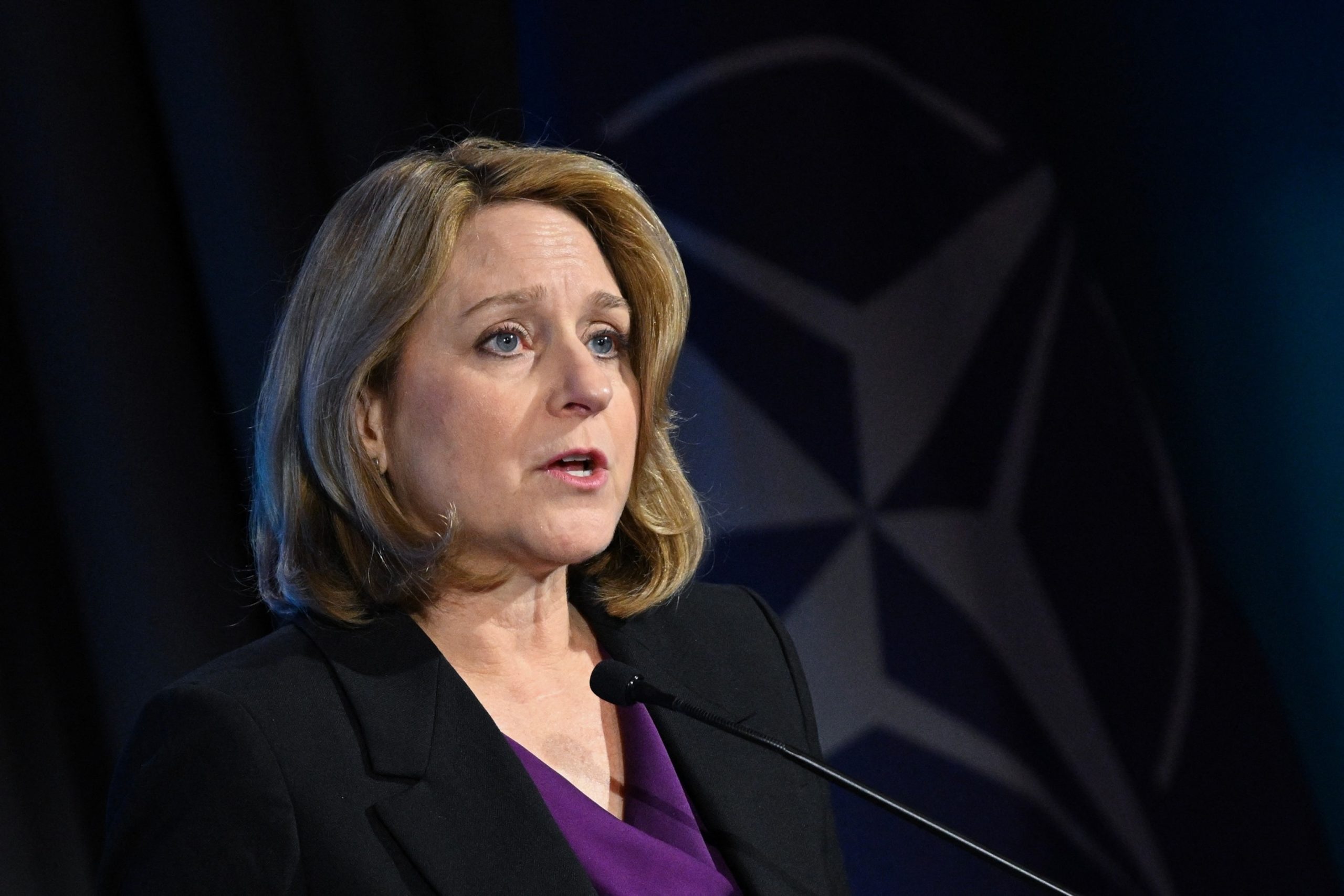The Pentagon is taking new steps to protect troops’ brain health, including mandating baseline cognitive tests for all new recruits starting next year to make it easier to diagnose traumatic brain injuries later on in their career.
In a memo released on Friday, Deputy Defense Secretary Kathleen Hicks also directed the services to try to increase the distance between personnel and weapon blasts during training exercises to minimize exposure.
Protective equipment should also be provided to anyone firing certain weapons, including instructors, she wrote.

Deputy Secretary of Defense Kathleen Hicks addresses the Chamber of Commerce in Washington, D.C., July 9, 2024.
Drew Angerer/AFP via Getty Images
The move comes nine months after a United States Army Reservist Robert Card went on a shooting rampage at a local bar and a bowling alley in Lewiston, Maine, and killed 18 people and injured 13 more.
A post-mortem study of Card’s brain by a center at Boston University and shared by Card’s family found it was “likely” he suffered from traumatic brain injury.
Card had been a U.S. Army Reservist and a longtime instructor at an Army hand grenade training range, and it was believed that he was exposed to thousands of low-level blasts, according to doctors at Boston University’s Concussion Legacy Foundation.
“Blast overpressure is one of many factors that can negatively affect warfighter brain health,” wrote Hicks in a statement, which said her directive “builds on existing efforts” across the services to “mitigate the impacts of blast overpressure.”

In this May 18, 2016, file photo, a hand grenade explodes after being thrown by a 10th Mountain Division soldier during a training exercise at Fort Drum, New York.
John Moore/Getty Images, FILE
Brain health effects from “blast overpressure” isn’t yet fully understood by researchers, which Hicks acknowledged in her memo. But researchers agree repeated exposure can impact a person’s brain health and cognitive performance, causing such ailments as headaches, attention difficulty and memory loss.
Baseline brain tests are intended to make it easier to diagnose a brain injury by comparing what the brain looked like before a blast exposure.
Currently, the military only gives baseline cognitive testing to troops ahead of a deployment. But that approach wouldn’t detect injuries from training.
The new Pentagon policy now mandates baseline testing for anyone entering service after Dec. 31. Active-duty troops already serving will receive baseline testing by the end of 2025, in addition to the new requirements for creating maximum distance between personnel and blast waves during training.
“This policy is not meant to preclude or unreasonably restrict commanders from conducting mission-essential weapons training,” Hicks wrote in the memo. “Rather, this policy establishes requirements for practical risk management actions to mitigate and track [blast overpressure] BOP exposures across the DoD.”
In a groundbreaking move, the Department of Defense (DoD) has announced plans to implement baseline cognitive testing for all troops in an effort to address traumatic brain injuries (TBI). This new initiative comes as a response to the growing recognition of the long-term effects of TBIs on military personnel and the need for early detection and intervention.
TBIs have become a significant concern for the military, with studies showing that they are one of the most common injuries sustained by service members. These injuries can result from a variety of causes, including blasts, falls, and vehicle accidents, and can have lasting effects on cognitive function, memory, and overall well-being.
The DoD’s decision to implement baseline cognitive testing for all troops is a proactive step towards addressing the issue of TBIs. By establishing a baseline assessment of cognitive function for each service member, the military will be better equipped to detect and monitor any changes in cognitive function that may occur as a result of a TBI.
This new initiative will involve all service members undergoing cognitive testing at regular intervals throughout their military career. The results of these tests will be used to establish a baseline level of cognitive function for each individual, which can then be compared to future test results in the event of a suspected TBI.
In addition to providing a baseline for comparison, these cognitive tests will also help to identify service members who may be at higher risk for TBIs due to factors such as previous head injuries or exposure to combat situations. By identifying these individuals early on, the military can take steps to provide them with the necessary support and resources to prevent or mitigate the effects of a TBI.
The implementation of baseline cognitive testing for all troops represents a significant step forward in the DoD’s efforts to address traumatic brain injuries among military personnel. By establishing a standardized approach to assessing cognitive function, the military will be better equipped to detect and treat TBIs in a timely manner, ultimately improving the long-term outcomes for service members who have been affected by these injuries.
Overall, this new initiative highlights the DoD’s commitment to the health and well-being of its service members and underscores the importance of early detection and intervention in addressing traumatic brain injuries. By implementing baseline cognitive testing for all troops, the military is taking a proactive approach to protecting the cognitive health of its personnel and ensuring that they receive the care and support they need to recover from TBIs.



